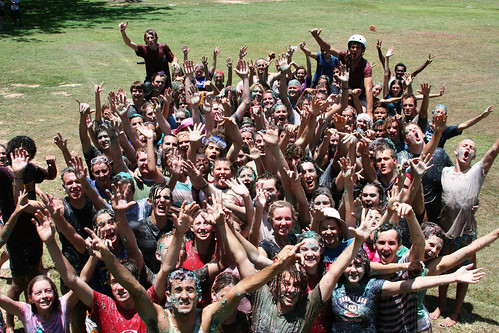
As a recent high school graduate, I can safely say that figuring out what to do with your summers can be a minefield. Going to camp is fun, but doesn’t look that great on college applications. Taking classes at a college can be education, but you don’t really want to spend anymore time in school. Internships are hard to find. And, as Emily Goldberg argues, community service trips are nearly non-existant.
Why is it that a culture so focused on charity and healing lacks the sort of programs Goldberg is advocating? Though a weak economy has led to a decrease in charitable contributions across the board, as a culture, Jews spend millions of dollars on causes promising to promote Jewish identity in their youth, most of which is directed towards Israel programs. The merit of such programs is a subject which has been fraught with debate in recent years, and which I would like to lay aside for the purpose of this argument. This isn’t about Israel. This is about how I believe that exactly the sort of program that Goldberg is proposing could serve as a vital link between Jews, their identity, and being a part of a larger world community.
As part of various community service outreach programs on my campus, I can safely assert that being active in helping the local community has given me a stronger sense of identification with said community. It has also caused me to reflect inward, to understand the greater societal factors at play and what can be done to address them, and to connect to some abstract sense of higher purpose that is often missing in our cultural milieu. The same principles can, and should be applied for teenagers. By engaging them in communities, even if they are not Jewish, in which they can serve a useful purpose will empower teens to become more active participants in a global discussion about the future. Such trips could be used to teach Judaism’s connections to such work, and thus give young adults easy access to a tenant of their faith. This isn’t about Jewish or Christian teenagers doing good. This is about how we can make our youth feel supported and engaged, and bring them into a world which they have bettered through their own actions and efforts.
